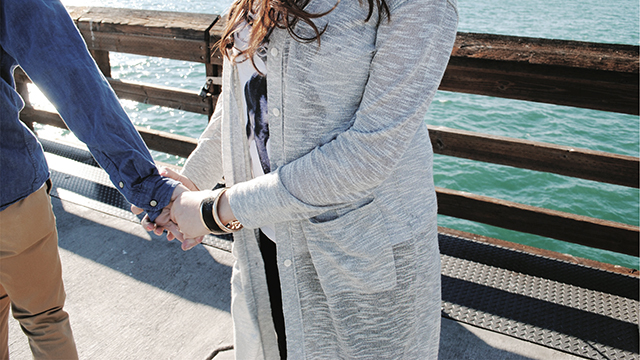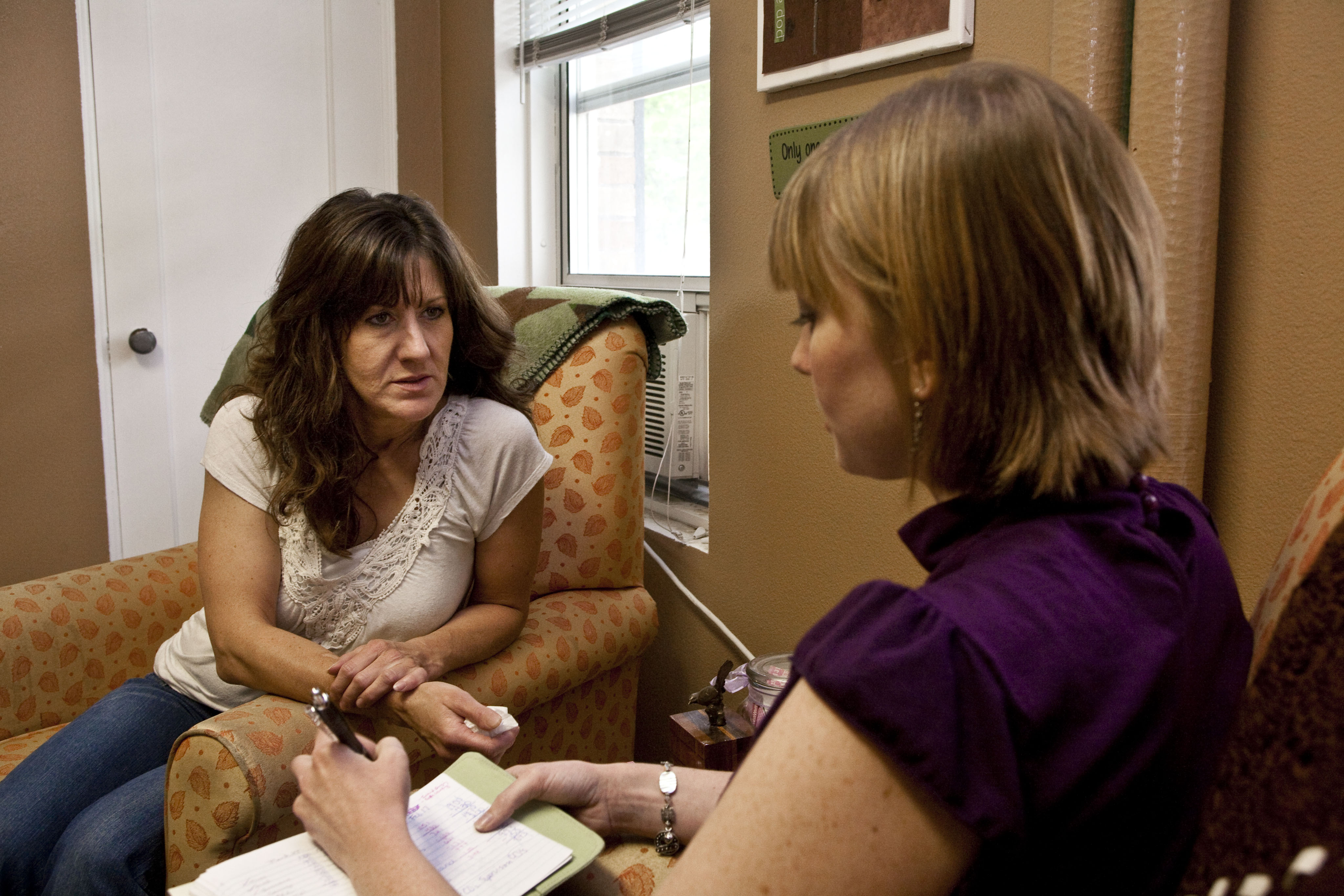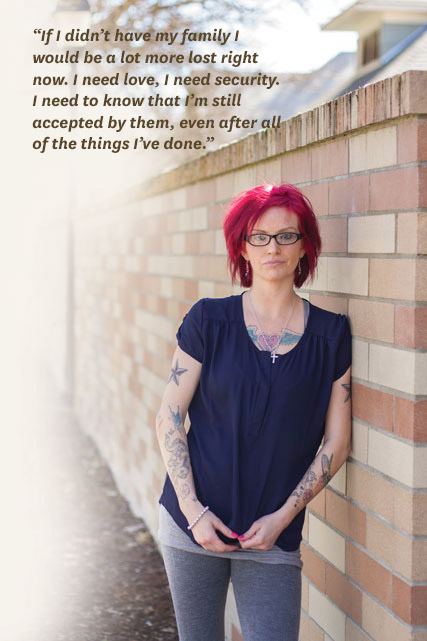2 min read
Gospel-Centered from the Start
“Let us hold unswervingly to the hope we profess, for He Who promised is faithful…Jesus Christ is the same yesterday, today, and forever.” (Hebrews...
In the second part of this series on relationship addiction, UGM LIFE Recovery Counselor Yvonne Wilhelm answers questions about how this type of addiction differs from others, why it's difficult to overcome, and more.
How do relationship and drug addictions differ, and how are they similar?
The two are perceived differently, but there are actually very few differences. If we look at addiction as any behavior one chooses time and time again that disrupts one’s life emotionally, physically, spiritually, and mentally, there is no difference. As with substance addiction, there can be physical withdrawal from relationships. There is an increase in anxiety, depression, suicide, diminished cognitive ability, anger, and agitation, and decrease in hunger to the point of starvation. This is not all-inclusive, but I hope people begin to see that relationship addiction is a serious problem that is under-treated.
Humans have a limbic system that records emotional, physiological, and mental memory. With both drugs and relationships there is a chemical called dopamine which is released. When addicts are unable to get the substance or be in the relationship, the neurochemical release is norepinephrine, which is the anxiety-producing chemical. It produces the craving to get the next “fix” — drugs or a relationship. Once the next “fix” comes, the neurochemical release is anesthetic.
Relationship addiction is more difficult to recognize because relationships are a normal part of life. God created us for relationship, but it’s addiction when it means there is significant loss as the cost of meeting a need.
 What does relapse look like when it comes to relationship addiction?
What does relapse look like when it comes to relationship addiction?
Relapse would be getting back into a pattern of unhealthy decision making about relationships. It can be connecting with someone intimately, romantically, emotionally, in order to find value and worth, or getting into pleasing and meeting everyone else’s needs but their own. If someone has walked through withdrawals and has been in recovery, relapse can be a slippery slope.
First there is usually a trigger that touches an unhealed part of the heart. The person will start an internal process of thought in which false beliefs about themselves begin to rise. They begin to forget priorities, sacrificing themselves for someone else, along with exerting some power and control over their relational environment.
The person may begin to isolate if subconsciously thinking about returning to an old relationship or starting a new one. Or, they may become overly busy with existing relationships. They are feeling more anxious and insecure about themselves and their value and worth and try connecting with someone to anesthetize their anxiety. After some time, if the feelings are unresolved, they will begin to reinforce thoughts that life would be better if … I was better when … he loved me enough; I think I’ve changed and I can do this now. They will not be looking for accountability.
The Genesis process says “relapse is returning to the place you swore you would never go again.”
Do you see relationship addiction as an issue in society at large?
Yes, and surely the media know this because commercials are all about relationship and materialism. I think there are a lot of people stuck in relationships that cause a decline in self-worth, value, self-esteem, and physical, emotional, and mental health. I think it is common that people “don’t know who they are” because they have become what others want them to be. I also think poverty, substance abuse, domestic violence, overworked parents who abandon and neglect the emotional needs of their children also have contributed.
What are the warning signs?
The signs are subtle: Something I have seen with those I work with who have relationship addiction is that they are connected to social media several hours a day, even for just a few minutes at a time. They grow anxious if their routine in relationship is broken. They fear people being upset with them, and they’re always changing opinions to match others’.
There is a lack of satisfaction outside of a relationship, waiting and passing time until they can be with that person. They’re afraid of sharing concerns and needed boundaries with the other person. Support is given at the cost of one’s own mental, emotional, and physical health.
A very clear and accurate sign of relationship addiction: The person rationalizes and minimizes the unhealthiness in a relationship and chooses to stay even though there are people outside of the relationship saying it is unhealthy.
What makes these relationship issues so difficult to overcome?
Fear of the unknown, loneliness, loss. Fear of not finding something to fill the void. Often those who are seeking help will have a moment of clarity about the problem. However, once the work of healing has begun they might begin to minimize the stories, withhold information, and choose to no longer talk about the relationships.
Also, relationship caused the original wounds, but it takes relationship and risk-taking to heal them. People need to be authentic and transparent with someone who really has their best interests in mind, lovingly challenges them, and holds them accountable for changing. It is through God’s grace and love that shame and guilt can be washed away.
People who have relationship addiction issues often surround themselves with others that have the same issue. They won’t enter into difficult conversations, so no challenges are ever brought forth.
I also believe the enemy wants to keep people from walking in freedom, so false beliefs are repeated unless there is a stronger spiritual force: Jesus Christ. There is nothing in this world that can overcome a spiritual attack except Jesus.
 What initial steps would you recommend to someone who begins to fear that he or she has unhealthy dependence on another person?
What initial steps would you recommend to someone who begins to fear that he or she has unhealthy dependence on another person?
Share with a friend. Seek Christian counseling. Get connected with a Christian support group – there are relationship addiction groups in both the Spokane and Coeur d’Alene areas.
Do you have a friend struggling to accept they're loved by God? Encourage them with this greeting card.

2 min read
“Let us hold unswervingly to the hope we profess, for He Who promised is faithful…Jesus Christ is the same yesterday, today, and forever.” (Hebrews...

9 min read
To celebrate 75 years of serving the Inland Northwest, we are spending the year remembering our history and the faithfulness that built us and...

2 min read
In 2026, Union Gospel Mission Inland Northwest is approaching our 75th Anniversary! This is a milestone that invites gratitude and reflection, and...

This post is the first in a 2-part series on relationship addiction by UGM LIFE Recovery Counselor Yvonne Wilhelm. How would you define relationship...

By Jina Doggett, Director of Women's Recovery at Anna Ogden Hall Addiction and recovery affect not only individuals, but family and friends....

IN HER PURSUIT OF PLEASURE, Rachel lost her joy. Disillusioned with the church, she ran away from God and became disconnected from family. “In the...